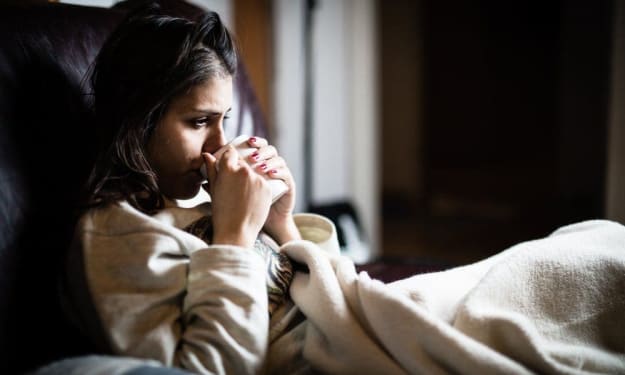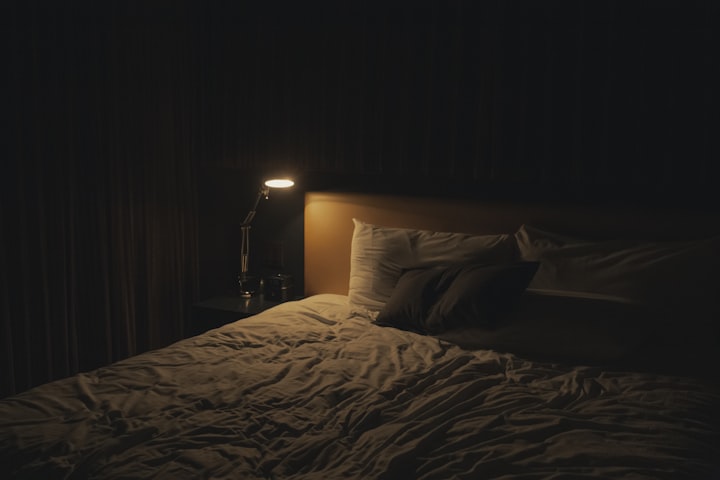What It's Like to Live With POTS
Long story short, it sucks.

Upon standing, the body naturally disperses your blood to your legs and your belly, which causes low blood pressure because there is less blood flowing back into your heart. In the normal, healthy human body, baroreceptors near your heart and in the arteries of your neck sense this low pressure. In return, these receptors send a signal to your brain to make your heart beat faster and pump more blood, which stabilizes your blood pressure. POTS, which stands for Postural (obviously the position of your body whether it be standing, sitting, or laying) Orthostatic Tachycardia Syndrome, is a form of low blood pressure that occurs when you sit up and stand from a laying down position.
Everyone experiences Orthostatic Hypotension — this is when you feel lightheaded or dizzy when you stand up too fast, presumably because your brain isn't getting enough blood. The simple treatment for this is to stand up slower so that your body can adjust to the change in blood volume, making it much less likely that you will experience dizziness or lightheaded when you stand up. For those lucky enough to have chronic Orthostatic Hypotension, simply taking your time standing up after you lie down doesn't make any difference in feeling lightheaded or dizzy. In this instance, it doesn't necessarily mean that you have POTS, but you should tell your doctor if you often experience this when you're up and moving around because this can indicate a serious problem.
POTS is a beach of a disease. Actually, according to my POTS specialist, it isn't really a disease, but a symptom of an underlying condition that is affecting your autonomic nervous system. Being someone who has POTS that is actually quite severe, an arrhythmia, Ehlers Danlos Syndrome, Mast Cell Activation Syndrome, and a Mitochondrial Disease, it's become really difficult to differentiate the difference between my symptoms. For example, I have chronic migraines. Every condition that I have causes migraines, so I have a hard time telling the difference between what I call a POTS migraine, where I'm having a POTS attack and my brain is like, "uhh, ga-doy, I don't have enough blood" or an EDS migraine where the connective tissue is dying, or a Mastcell/Mitochondrial migraine where the cells in my body are attacking themselves because they have nothing better to do.
When someone asks me what it's like to live with all of this crap, I automatically assume that they are referring to the POTS because it is the condition that is the most debilitating. Drain a little more than half of your blood supply and try to walk a mile. I can tell you right now that you won't be able to. Your body needs blood to function, right? During a POTS attack, there isn't enough blood to feed your brain and maintain your heart, so it slows down to compensate for what it's missing. So, if most of your blood is in your legs and your belly, how is your brain going to tell your legs to move? How is your brain going to tell your body how to function? Well, long story short, it can't. Not very well, anyway. Have fun with your intensely swollen abdomen and legs; make sure that you pop a couple of tylenol for the pain; it probably won't help, though.
Taking 40 pills a day really sucks. I wish that I were exaggerating when I say that, but I'm not. Not everyone with POTS ends up taking that much medication, or any medication at all, in some cases! Not every single diagnosis of POTS is the end of the world, either. Some people with this condition can live their normal lives with little to no symptoms while the others, like me, need twelve different medications just to get out of bed. It's also very important to note that not every person with POTS ends up having a gazillion other conditions with it. Those are the people who end up with tons of medications.
As always, I really hope that you enjoyed reading this and that you found it at least somewhat informative! Happy Holidays! Whatever you celebrate, wherever you are, I hope that you and your loved ones are and remain healthy!






Comments
There are no comments for this story
Be the first to respond and start the conversation.